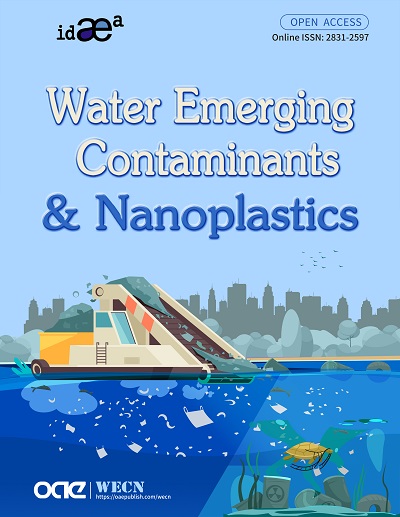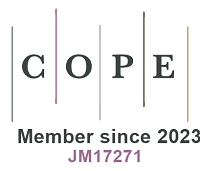
Topic: Innovative Approaches to Sustainable Food Systems: Microplastics, Biotechnology, and Valorization of Marine By-Products
A Special Issue of Water Emerging Contaminants & Nanoplastics
ISSN 2831-2597 (Online)
Submission deadline: 15 Jul 2025
Guest Editor(s)
Special Issue Introduction
Innovative approaches to sustainable food systems are critical to addressing global challenges such as food security, environmental degradation, and climate change. One emerging area of focus is the role of microplastics, biotechnology, and the valorization of marine by-products in shaping future food production models.
Microplastics, pervasive in marine ecosystems, are increasingly recognized for their potential impact on human health and the environment. Innovative strategies aim to reduce their presence in food systems, focusing on safer packaging and more sustainable agricultural practices. Researchers are exploring biodegradable alternatives to plastics, which would minimize contamination of both marine life and food supplies.
Biotechnology offers promising solutions for combating microplastic pollution by developing biodegradable materials and microorganisms capable of breaking down plastics. These innovations aim to mitigate the environmental impact of microplastics in marine ecosystems and food chains by fostering more sustainable packaging options and reducing harmful plastic accumulation in the environment.
The valorization of marine by-products presents another promising approach. Seafood industry waste, including fish scales, bones, and shells, can be repurposed into valuable products such as collagen, bioactive peptides, and fertilizers. This approach not only reduces waste but also creates a circular economy within the food sector, contributing to sustainability and reducing reliance on traditional agricultural resources.
Microplastics, pervasive in marine ecosystems, are increasingly recognized for their potential impact on human health and the environment. Innovative strategies aim to reduce their presence in food systems, focusing on safer packaging and more sustainable agricultural practices. Researchers are exploring biodegradable alternatives to plastics, which would minimize contamination of both marine life and food supplies.
Biotechnology offers promising solutions for combating microplastic pollution by developing biodegradable materials and microorganisms capable of breaking down plastics. These innovations aim to mitigate the environmental impact of microplastics in marine ecosystems and food chains by fostering more sustainable packaging options and reducing harmful plastic accumulation in the environment.
The valorization of marine by-products presents another promising approach. Seafood industry waste, including fish scales, bones, and shells, can be repurposed into valuable products such as collagen, bioactive peptides, and fertilizers. This approach not only reduces waste but also creates a circular economy within the food sector, contributing to sustainability and reducing reliance on traditional agricultural resources.
Keywords
Plastics; microplastics, food systems, biotechnology, marine by-products, marine industry, sustainability, environment
Submission Deadline
15 Jul 2025
Submission Information
Five articles in the Special Issue are exempt from article processing charges.
For Author Instructions, please refer to https://www.oaepublish.com/wecn/author_instructions
For Online Submission, please login at https://www.oaecenter.com/login?JournalId=wecn&IssueId=wecn2507152349
Contacts: Serein, Managing Editor, watercontaminants@oaemesas.com







